Wittenborg Online News!
Winter Graduation Ceremony Celebrates the Achievements of 49 Students
Winter Graduation Ceremony Celebrates the Achievements of 49 Students
Winter Graduation Ceremony Celebrates the Achievements of 49 Students
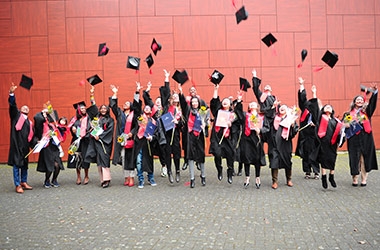
Event Took Place at the Aventus Building, in Apeldoorn
For 49 Wittenborg University of Applied Sciences students who have just completed their degrees, Friday, 4th February, was a special day, filled with joy, satisfaction and pride. Having taken place at the ROC Aventus Auditorium, in Apeldoorn – and also livestreamed for those who could not be physically present – the 2022 Winter Graduation Ceremony celebrated the achievements of 31 bachelor’s and 18 master’s students, who received their hard-earned diplomas. In total there were 172 graduates in 2021, including those who graduated in the summer.
The new Wittenborg alumni represent 18 countries: Germany, China, Pakistan, Nigeria, India, Vietnam, Iran, Tunisia, Sri Lanka, Indonesia, South Korea, Ukraine, Sudan, Mexico, Mozambique, Thailand, Russia and the Netherlands.
The ceremony was attended by the students, their families and friends, as well as Wittenborg’s lecturers and support staff. In the event’s opening speech, Dr Petra de Weerd-Nederhof, who is a member of Wittenborg’s advisory board, highlighted the school’s international and diverse character, and encouraged students to strengthen and maintain the networks they have developed while attending their programmes.
“Keeping in touch with your classmates and other alumni will enrich your life and provide you with a powerful network, where you can help each other find jobs and maybe even start companies together. Now that you have graduated, there are a lot of opportunities out there; keep an eye on everything and be careful about choosing. Remember that you can rely on each other’s support for making the right choices,” she said.
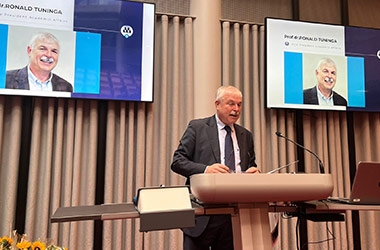
Graduating in a pandemic
De Weerd-Nederhof also stressed that the new alumni had to face the COVID-19 pandemic while pursuing their programmes, which posed extra challenges such as studying remotely, missing a vibrant social life and not being able to visit their families.
“Still, you persevered and earned this diploma, showing your resilience, and a special credit goes out to all of you for making it. It is also very important to give special thanks to the Wittenborg teaching and support staff, because they worked really hard to adapt to this situation and made it possible for you to complete your studies. So, this was not just your achievement, but a collective, collaborative effort that involved your families, friends, lecturers and support staff.”
Quality of teaching
Wittenborg’s Vice President of Academic Affairs, Professor Ronald Tuninga, stressed that the new graduates are well-equipped to be leaders in both the private and public sectors, thanks to the institution’s quality of teaching and its focus on internationalisation, diversity and ethics. “Culturally sensitive, tolerant, ethically and socially responsible managers can help build companies that are responsive to the needs of all stakeholders in society, and do so in an honest way,” he said.
Tuninga also invited the alumni to stay in touch with Wittenborg, helping future students and contributing to make the school even better.
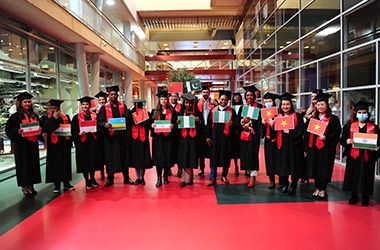
Achievements
According to Indian student Sumit Panwar, who completed a bachelor’s degree in Logistics & International Trade, studying at Wittenborg was a great opportunity to meet people from different countries and backgrounds, mindsets and skills, and he says that has helped him grow as a person. “In order to succeed, students should believe in themselves, work hard and focus on their studies and other valuable activities. It is important to give your best and not overthink about the results,” he advises.
Robert Freytag, from Germany, says that the biggest challenges he had to face while pursuing his bachelor’s degree in Sport Business Management were related to the COVID-19 pandemic. “For the last one and a half year, it was really hard to continue with my studies despite not being able to live in the Netherlands and not having any personal contact with the lecturers and other students.”
Freytag, whose thesis analysed the effects of digitalisation on the financial performance of the German Football League, points out that he would like to continue to work in the sports industry. “I might also like to go back to university to study for a master’s degree,” he adds.
WUP 06/02/2022
by Ulisses Sawczuk
©WUAS Press
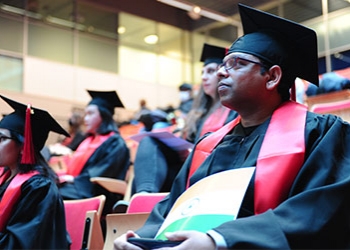
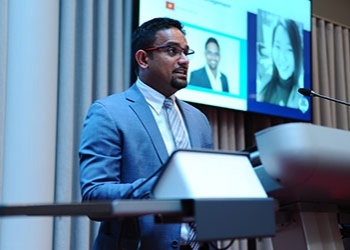
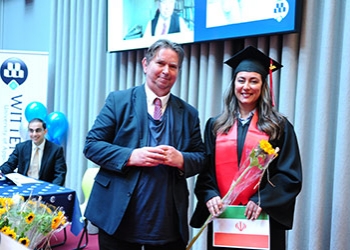
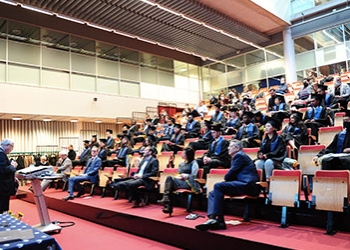
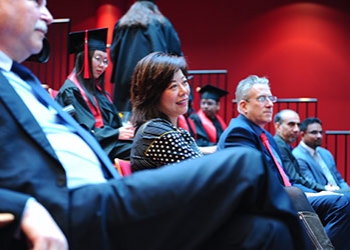
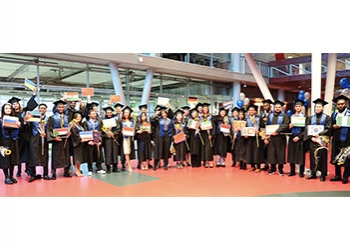
705 words